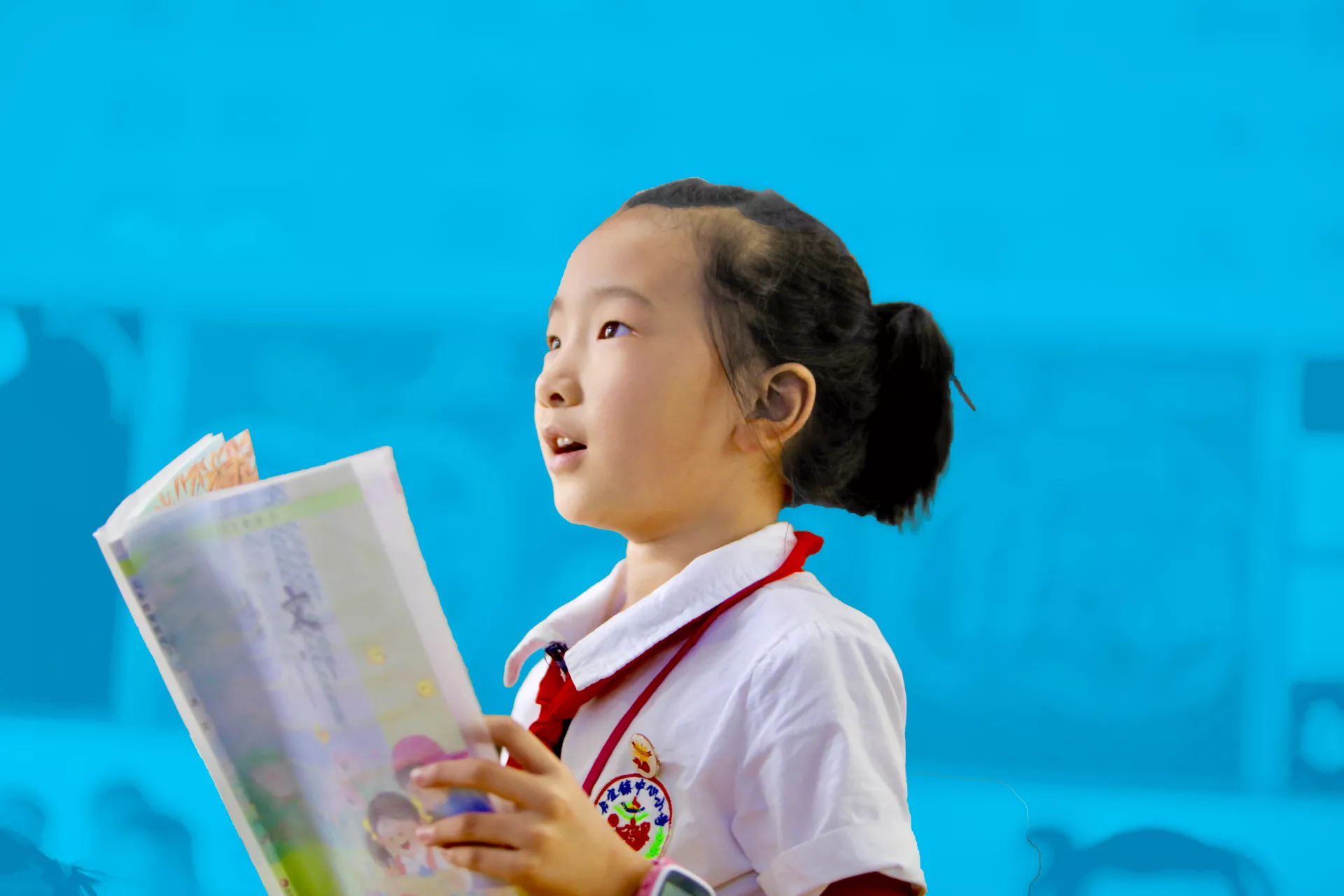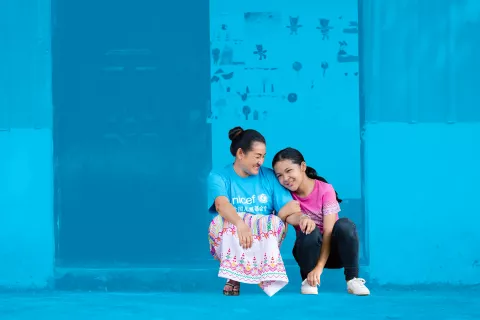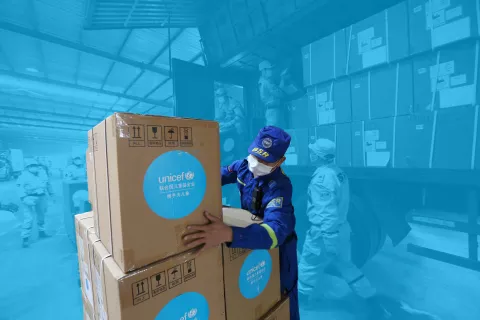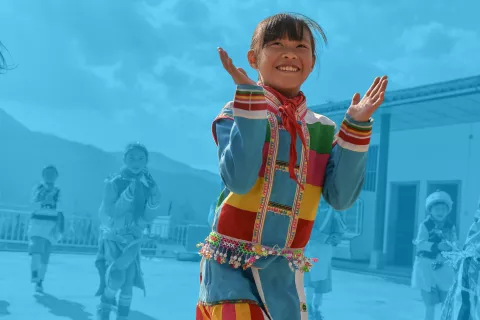Education
Education is every child’s right, paving the way to a happy, successful and productive future.

- Available in:
- 中文
- English
Challenges
China has the task of educating the second-largest population of children globally with more than 298 million children. Over the past two decades access to education has increased dramatically, but challenges remain.
The major challenges UNICEF is working to solve with the Government of China and other partners are:
| Education disparities | Not all children are receiving the same quality of education. Access to high-quality education is especially lacking for children in rural areas. There are inequities based on location, wealth and migration status, and these disparities increase with age. |
| School violence and bullying | Not all children are able to learn in environments free from violence and bullying. This includes physical and psychological violence and verbal abuse from peers or school personnel. Violence hinders attendance, leads to higher drop-out rates, and is associated with lower scores and self-esteem. |
| Inequitable educational investment | Decentralized financing for education means that investments depend largely on local government. Central government funding does not always make up for lower local investment in poorer and rural areas. |
| Climate change and the environment | Climate change magnifies the risk of disasters, which have significant impacts on school infrastructure and students’ attendance. It also affects children’s education through its impact on health and nutrition. |
| Early childhood and education | Not all children are growing up in a stimulating environment. Not all parents and caregivers have the support they need to provide a caring, playful and nurturing environment. This is more often seen among children from rural, remote areas and migrant families. |
| Education quality | There is often a narrow focus on test scores and rote learning at the expense of deeper learning and skills and holistic development. There is a shortage of teachers who have the knowledge and skills to fully develop a child’s potential. |
| Preparing adolescent for life and work | Not all adolescent children – many of whom are going through major physical, cognitive, emotional and social change – are not learning the skills they need to transition from childhood to adulthood, and from school to the workplace and into society. |
Solutions
Together with the Government of China and partners, UNICEF will prioritize unfinished business around inequitable access and quality of early childhood care and education, disparities in learning outcomes, and inadequate adolescent skills acquisition for life and work.
This includes:
| Ensure equitable and quality education for all children | Training qualified teachers, particularly in rural areas. Building a teaching and learning environment in schools that is child-friendly and inclusive. Making the curriculum more relevant and including skill-based learning. |
| Provide every child with a strong start in school and life | Helping parents, caregivers, and children experience high quality age-appropriate early-learning, receive information about child development, and learn the parenting skills to support children to develop to their full potential. |
| Give girls the same opportunities as boys | Providing STEM and life-skills education through a gender-sensitive approach for in-school and out-of-school adolescents in pilot sites across the country. |
| Prepare children with the skills they need to thrive | Developing a 21st century skills framework for vocational education and training programmes to improve adolescents’ competency and employability. |
Resources
These education resources represent just a small selection of materials produced by UNICEF and its partners. The list is regularly updated to include the latest information.
- Social and Emotional Learning
- Child-Friendly School Teacher Training Manual
- Building Better Brains: New Frontiers in Early Childhood Development
- Integrated Approaches to Early Childhood Development: 0-3 Years
- Early Childhood Development: 3-6 Years
- Child-Friendly, Equitable and Quality Basic Education: 6-12 Years
- UNICEF-CAST Adolescent Education Project Case study (2011-2015)
- Education for Adolescents: Why what and how?





